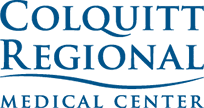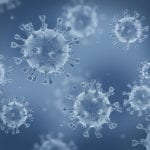Robert Jeter, M.D.
Family Medicine Residency program, Colquitt Regional Medical Center
The year 2020 will certainly be remembered for a great many things, but I would not hesitate to suggest COVID-19 and its surrounding controversies will often sit at the forefront. COVID-19, formally known as SARS-CoV-2 and informally referred to as the coronavirus, was first confirmed in the USA on January 20, 2020, where it simmered for several weeks. February 25, 2020 saw the first US soil local outbreak and by March 11 a pandemic was declared. To date, the CDC reports 7.7 million positive cases in the US with over 214,000 deaths.
Initially, the CDC recommended masks only for healthcare workers and those showing COVID-19 symptoms. As of April 3, 2020, they recommend people in public always wear a mask. While this may seem a reversal to some, it was a revision following new information. The facts include data that up to 25% of COVID-19 infections are asymptomatic and, even further, that the most infectious period (when viral shedding is the highest) is when the symptoms are mild. So now that there is a clear stance on masks, do they work?
When we speak, microscopic droplets are ejected from our mouths and noses which linger in the air and travel up to 9 feet. Droplets can make their way into the eyes, nose, and mouth of another person in the absence of a cough or sneeze. Furthermore, they can land on everyday objects we intend to touch, including doorknobs and keyboards. A laser light scattering experiment by scientists at National Institutes of Health shows that a single minute of loud speaking generates over 150,000 droplets with estimates suggesting at least 1,000 contain viral particles. One study evaluating the efficacy of masks identified that over 99.9% of respiratory droplets were trapped in the mask (droplets smaller than 5 nanometers were not caught but are believed to be too small to contain the virus). The benefit isn’t just for others; studies by the WHO Collaborating Centre for Infectious Disease Epidemiology and Control have shown that wearing a mask can reduce the risk of contracting airborne illnesses including COVID and Influenza by as much as 75%.
So now that we’ve determined masks do protect us, which one should I wear? While data from Stanford and Duke University shows that N95 confers the most protection, it is also the least comfortable and hardest to find. Surgical masks provide benefit and are often considered comfortable but are notably single use. Cloth masks offer the most variety, are easy to find or even make, and can be reused after washing. It is important to remember that no matter how effective a mask might be, it only works when it is worn correctly; thus, a mask comfortable enough to wear for prolonged periods is essential. If you are consistent in mask-usage and correctly wear one that covers your mouth and nose, the one you choose is not as important. The efficacy of a mask in both individual and group studies is more about compliance than the material.








